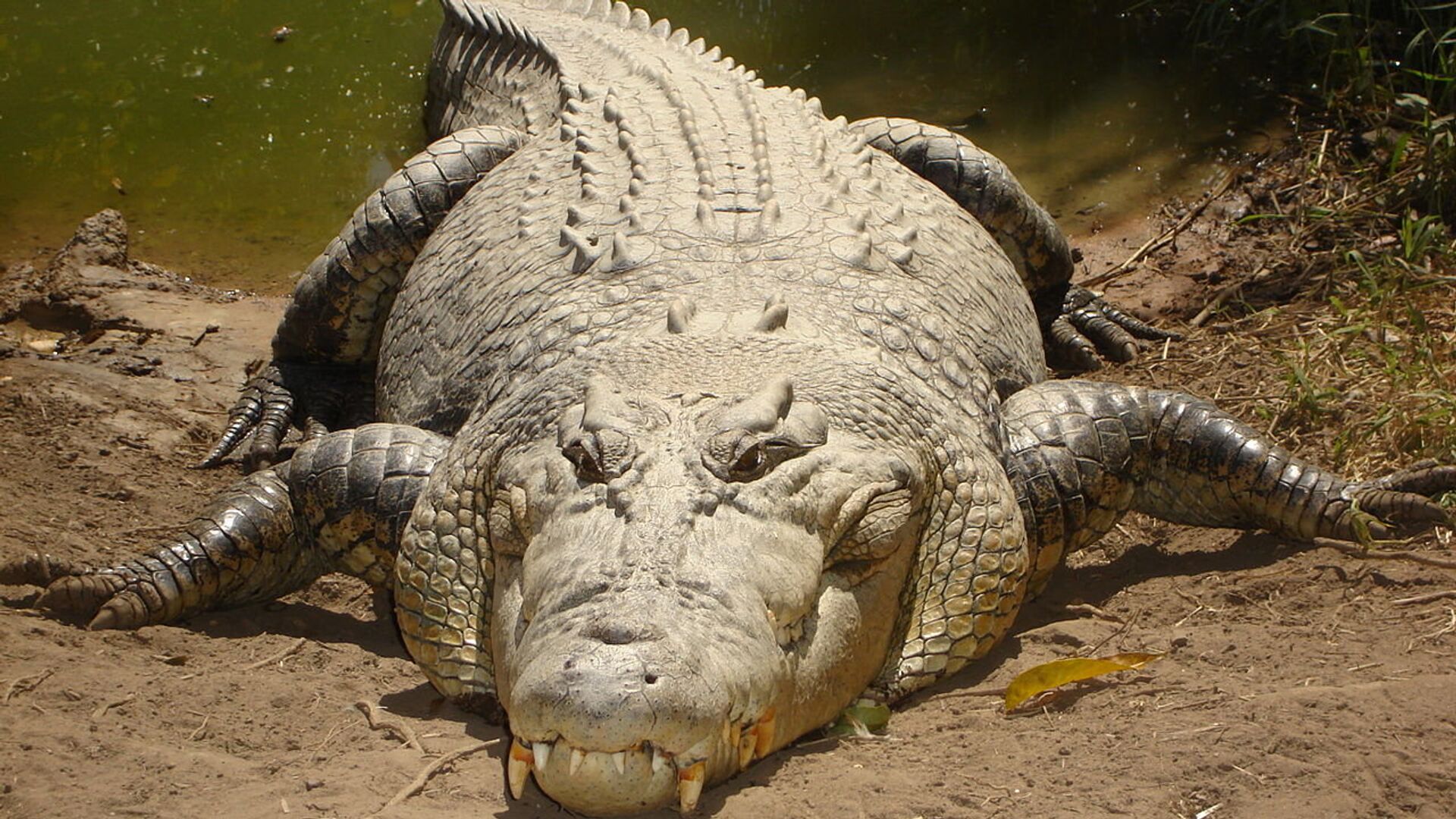Iran’s Water Problem Led Crocodiles to Turn on Humans, Media Says

CC BY-SA 2.0 / fvanrenterghem / Saltwater crocodile
Subscribe
Experts say a combination of factors have led to the problem of water scarcity, namely the decline of groundwater resources and prolonged droughts, which have in turn led to lakes and rivers drying up. Critics of the government accuse authorities of water mismanagement, claiming they have diverted water away from farmlands to industrial complexes.
Iran’s water problems have led crocodiles to turn on humans, the BBC reported. Attacks by the reptiles have been on the rise in areas affected by water scarcity. Siahouk, a shepherd from Baluchistan province, told the outlet how a mugger crocodile gnawed into his arm when the 70-year-old decided to get water from a pond.
Siahouk managed to escape after he squeezed a water bottle into the animal’s mouth. It seems that the shepherd was lucky, because after he fainted due to the loss of blood, the crocodile didn’t try to attack him again.
Other residents of Baluchistan province have been left injured, maimed, and even killed following encounters with crocodiles. Children are especially vulnerable. In 2019, a 10-year-old girl lost an arm after she went to a pond to collect water for laundry. She was saved by passers-by.
Experts contend that the country’s water problem is to blame for the rising number of attacks, namely the loss of natural habitat due to rivers, lakes, and ponds drying up. As a result, the animal’s prey (fish, snakes, frogs) has become scarce, leading crocodiles to look for anything edible they can find. The attacks may also have to do with the creatures perceiving humans as a danger to their natural habitat.
Iran has been dealing with water scarcity for several years now, but this year the situation worsened drastically due to a record hot summer, the driest one in 50 years, according to officials.
Other residents of Baluchistan province have been left injured, maimed, and even killed following encounters with crocodiles. Children are especially vulnerable. In 2019, a 10-year-old girl lost an arm after she went to a pond to collect water for laundry. She was saved by passers-by.
Experts contend that the country’s water problem is to blame for the rising number of attacks, namely the loss of natural habitat due to rivers, lakes, and ponds drying up. As a result, the animal’s prey (fish, snakes, frogs) has become scarce, leading crocodiles to look for anything edible they can find. The attacks may also have to do with the creatures perceiving humans as a danger to their natural habitat.
Iran has been dealing with water scarcity for several years now, but this year the situation worsened drastically due to a record hot summer, the driest one in 50 years, according to officials.
A combination of factors have led to the ongoing problem - the decline of groundwater resources due to overuse, reduced rainfall, and drying of lakes, rivers, and ponds, which is believed to have occurred as a result of climate change. Critics of the government have also accused authorities of mismanagement, claiming water has been diverted from the affected regions to industrial complexes.
Isa Kalantari, former head of Iran’s Department of Environment, has warned that if the crisis continues, the Islamic Republic may see "approximately 50 million people" leave the country.
Isa Kalantari, former head of Iran’s Department of Environment, has warned that if the crisis continues, the Islamic Republic may see "approximately 50 million people" leave the country.
